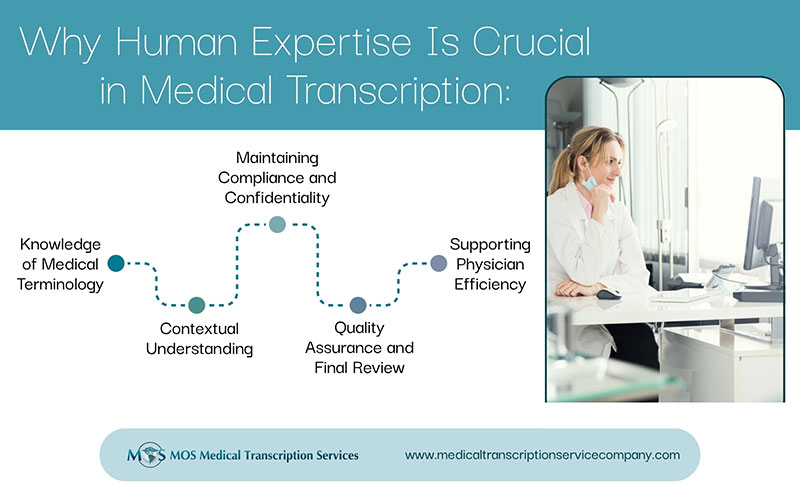Even though technological advances and EHR have changed the way medical transcription is done today, it is critical for medical transcriptionists to work on improving their skills to provide accurate transcripts. Medical transcription companies are often required to deliver accurate transcriptions, often within short time frames. To meet the target requirements, the transcriptionists serving the company should be skilled enough and be capable of generating accurate transcripts. Remember that even minor errors in medical reports can lead to inaccurate diagnoses and possibly serious complications for the patient.
Here are some tips you can consider to provide error-free transcripts.
Choose a calm work environment
Choose a quiet environment to work, so that you can focus on the audio files without any distractions. Try to leave your phone and TV far from you or you will be distracted by the messages you get or by any interesting programs on television. While working from home, choose a pleasant and tidy place.
Master medical specialty terminology
Get familiar with frequently occurring medical terms, as this will also help to differentiate between the abbreviations. Clear knowledge of medical terms will help avoid transcribing the wrong information. Also, you need to be very careful while typing in medication and dosage details.
Improve editing skills
Editing is now the most crucial task for medical transcription. With the introduction of Electronic Health Records (EHRs) and speech recognition technology, in many professional companies, transcriptionists do not have to manually transcribe the recorded notes. Instead they have to edit the transcripts the system provides to ensure accuracy and completeness. Improving your editing skills helps to identify spelling, syntactic, or grammatical mistakes as well as other errors in the transcribed file.
Use quality headset and advanced software
As a medical transcriptionist, you should use the right tools to get the job done. Quality of the equipment and software you use will also impact your work’s accuracy. A good headset will help you better understand the dictations with clearer sound, by blocking out noises in your environment. Install advanced transcription software in your computer that comes with rewind and forward functionalities.
Improve typing speed
To avoid typing errors, practice using the correct fingers for the different keys and type without looking at the keyboard. Know your keyboard well and try to improve your speed, as long as you are sure that it will not compromise your accuracy in the process. Diverse online programs are now available to help you increase your typing speed. Good knowledge of keyboard shortcuts can also help enhance your typing skills.
Listen before transcribing
Even if you are working on a tight schedule, take some time to listen to the file before you start working, as this can improve accuracy. Note down any key points you listen to, which helps to create a brief summary. If any area needs clarification, contact the doctor before you start typing. Having a clear picture of what you have to transcribe helps speed up the process.
Medical specialties rely on medical transcription outsourcing solutions to save precious time for their core activities. Before transcribing, check whether the physician requires verbatim or non-verbatim transcripts. While verbatim transcription will take longer to transcribe, intelligent verbatim transcription cuts out unnecessary words, repeats, pauses, ‘ums’ and the ‘ers’. This will save transcription time.


